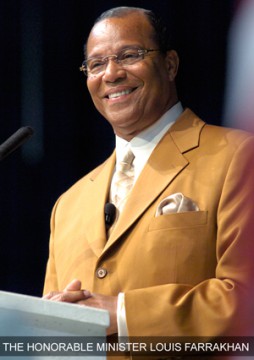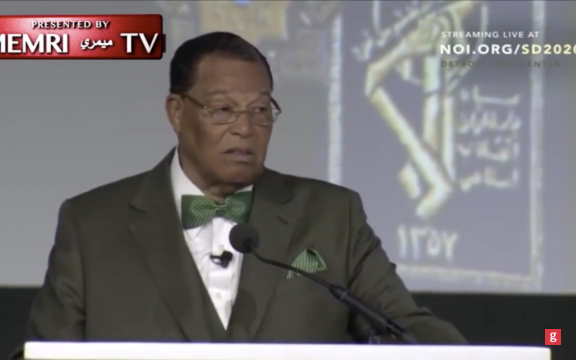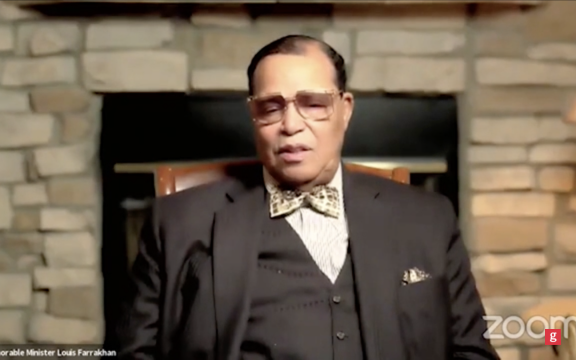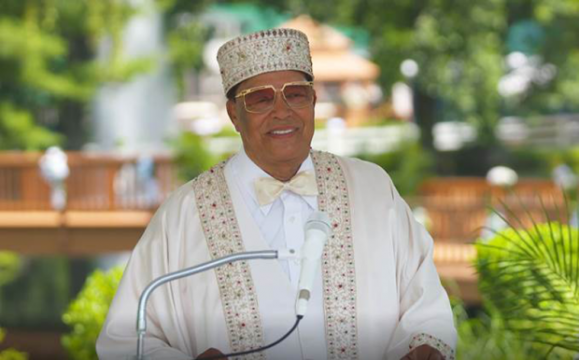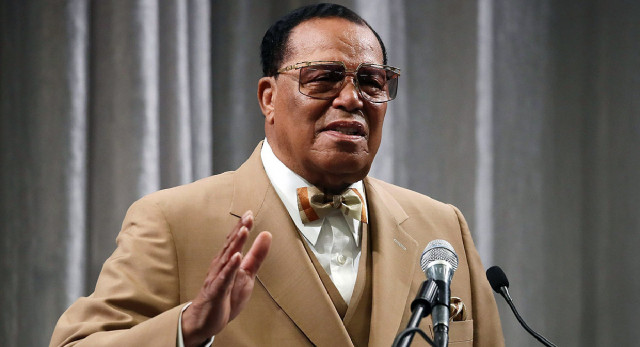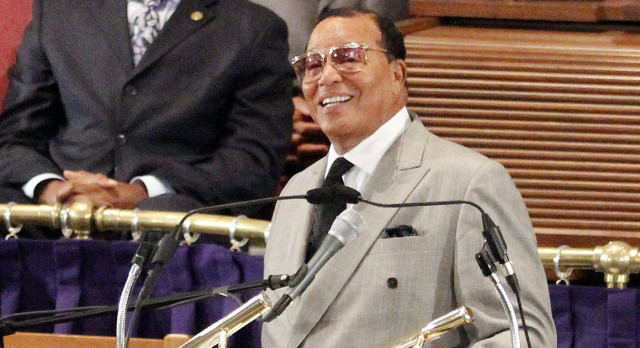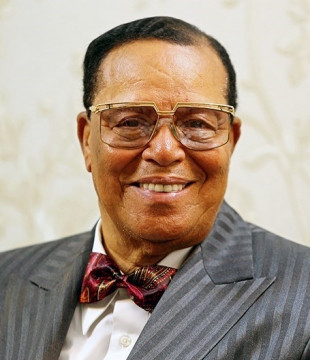PERSON: Louis Farrakhan
Position
Leader
Biography
Louis Farrakhan (/ˈfɑːrəkɑːn/; born Louis Eugene Walcott; May 11, 1933) is an American religious leader who heads the Nation of Islam (NOI), a black nationalist organization Farrakhan is notable for his leadership of the 1995 Million Man March in Washington, D.C., and for his rhetoric that has been widely denounced as antisemitic and racist.
Prior to joining the NOI, Farrakhan was a calypso singer who used the stage name Calypso Gene. Early in his career, he served as the minister of mosques in Boston and Harlem and was appointed to the post of National Representative of the Nation of Islam by then-NOI leader Elijah Muhammad. He adopted the name Louis X before being named Louis Farrakhan.
After Warith Deen Mohammed reorganized the original NOI into the orthodox Sunni Islamic group American Society of Muslims, Farrakhan began to rebuild the NOI as “Final Call”. In 1981, he officially adopted the name “Nation of Islam,” reviving the group and establishing its headquarters at Mosque Maryam. In October 1995, Farrakhan organized and led the Million Man March in Washington, D.C.. Due to health issues, he reduced his responsibilities with the NOI in 2007. However, Farrakhan has continued to deliver sermons and speak at NOI events. In 2015, he led the 20th Anniversary of the Million Man March: Justice or Else.
Farrakhan is known for antisemitic statements and racist remarks directed at white people. His antisemitic statements and views have been condemned by the Southern Poverty Law Center, the Anti-Defamation League (ADL), and other organizations. Farrakhan’s views and remarks have also been called homophobic. He has denied assertions that he is antisemitic, racist, or anti-gay. Farrakhan was banned from Facebook in 2019 along with other public figures considered to be extremists.
>> Wikipedia
Prior to joining the NOI, Farrakhan was a calypso singer who used the stage name Calypso Gene. Early in his career, he served as the minister of mosques in Boston and Harlem and was appointed to the post of National Representative of the Nation of Islam by then-NOI leader Elijah Muhammad. He adopted the name Louis X before being named Louis Farrakhan.
After Warith Deen Mohammed reorganized the original NOI into the orthodox Sunni Islamic group American Society of Muslims, Farrakhan began to rebuild the NOI as “Final Call”. In 1981, he officially adopted the name “Nation of Islam,” reviving the group and establishing its headquarters at Mosque Maryam. In October 1995, Farrakhan organized and led the Million Man March in Washington, D.C.. Due to health issues, he reduced his responsibilities with the NOI in 2007. However, Farrakhan has continued to deliver sermons and speak at NOI events. In 2015, he led the 20th Anniversary of the Million Man March: Justice or Else.
Farrakhan is known for antisemitic statements and racist remarks directed at white people. His antisemitic statements and views have been condemned by the Southern Poverty Law Center, the Anti-Defamation League (ADL), and other organizations. Farrakhan’s views and remarks have also been called homophobic. He has denied assertions that he is antisemitic, racist, or anti-gay. Farrakhan was banned from Facebook in 2019 along with other public figures considered to be extremists.
>> Wikipedia
ClipsBank
Full
Compact
NewsBase
Full
Compact
RadioBank
Full
Compact
PodBank
Full
Compact
TranscriptBank
Full
Compact
No data found

